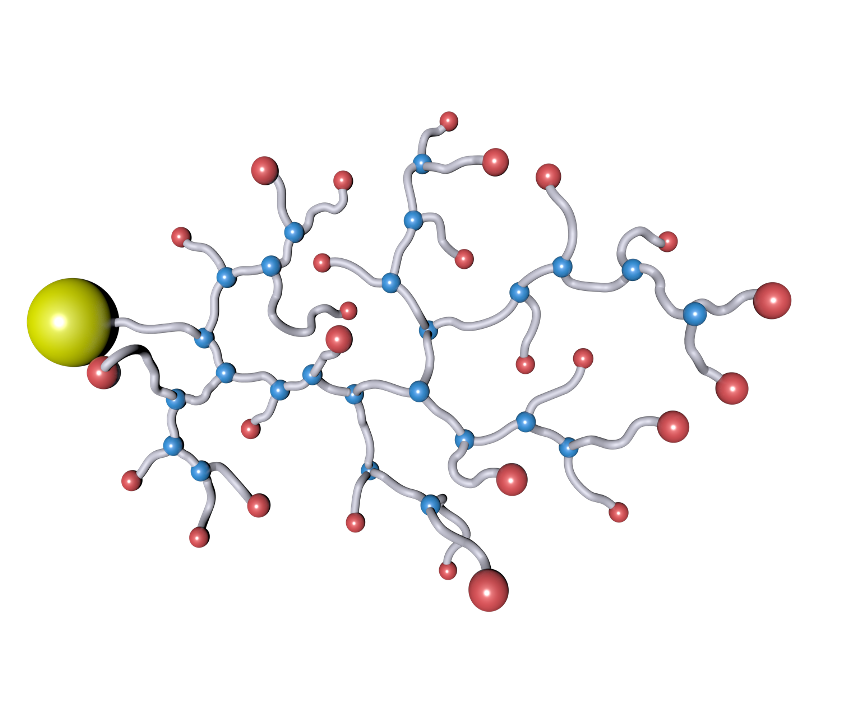Checking Out the Varied Applications and Advantages of Polymers in Different Industries
Polymers, with their varied variety of buildings and functionalities, have come to be vital in numerous industries, each enjoying unique take advantage of their application. Polymers. From boosting security and performance in the vehicle industry to transforming medical tools in the health care market, polymers play an essential function. Moreover, their environment-friendly nature is modifying the landscape of sustainability techniques. As we explore the midsts of polymers in electronic devices, we uncover cutting-edge innovations, while their structural honesty changes the realm of building and construction and infrastructure. The pervasive influence of polymers across markets is a testament to their flexibility and flexibility, forming the future of countless sectors.
Automotive Industry Applications
Polymers play an essential duty in boosting the performance and resilience of various components within the vehicle industry. These functional materials are thoroughly made use of in the production of various components, ranging from indoor components to under-the-hood applications. One prominent use polymers in the automotive market remains in the manufacturing of lightweight elements. By replacing standard steel components with polymer-based alternatives, cars can achieve enhanced fuel effectiveness without endangering on toughness or security.

Healthcare Sector Benefits
In various health care applications, the benefits of utilizing polymers are commonly acknowledged for their diverse series of helpful residential properties. Polymers play a vital duty in the medical care sector because of their flexibility, biocompatibility, and cost-effectiveness. Among the key advantages of polymers in medical care is their capability to be customized to particular demands, such as adaptability, resilience, and biodegradability, making them optimal for a wide variety of medical applications.
Polymer-based materials are extensively utilized in medical tools, such as catheters, implants, prosthetics, and drug delivery systems, because of their biocompatibility and capacity to resemble natural cells. These products can lower the risk of allergies or rejections, improving individual safety and end results. Furthermore, polymers are lightweight, making them ideal for wearable medical tools and ensuring client convenience.
Furthermore, polymers allow the development of cutting-edge treatment methods, such as hydrogels for tissue engineering and nanocomposites for targeted drug delivery. Their simplicity of handling and sanitation makes them vital for keeping high standards of health in healthcare setups. On the whole, the varied benefits of polymers add considerably to innovations in medical modern technology and individual treatment.
Ecological Advantages of Polymers

Additionally, polymers can add to power cost savings as a result of their light-weight nature. i loved this In industries such as transport, lightweight polymer products can help in reducing fuel consumption and greenhouse gas emissions. In addition, polymers can enable the growth of energy-efficient products such as insulation materials that enhance power conservation in structures.
Furthermore, polymers play a crucial duty in decreasing water contamination. For example, basics the use of polymer-based filtering systems can effectively eliminate pollutants and contaminants from wastewater, securing water resources and environments. In general, the ecological benefits of polymers make them useful properties in advertising sustainability and environmentally friendly practices throughout different industries.
Polymers in Electronics and Modern Technology
Considering the raising demand for innovative and sustainable services in contemporary industries, the integration of innovative polymer technologies in the realm of electronic devices and innovation has actually become a pivotal strategy for driving efficiency and efficiency. Polymers have changed the electronic devices sector by allowing the manufacturing of lighter, much more flexible, and resilient electronic gadgets. From mobile phones to clinical devices, polymers play a critical role in enhancing item design and capability.
One substantial advantage of polymers in electronic devices is their shielding buildings, which assist shield fragile digital elements from environmental factors and electrical disturbance. In addition, polymers are essential in the growth of flexible displays, wearable innovation, and published electronics, supplying endless opportunities for creating wise and interconnected tools.
Furthermore, making use of polymers in electronic packaging has actually resulted in improvements in miniaturization and thermal management, boosting the this content total efficiency and dependability of electronic systems. As modern technology remains to progress, the convenience and adaptability of polymers will unquestionably drive better innovation in the electronics industry, shaping the future of technology.
Function of Polymers in Construction and Facilities
The integration of innovative polymer products in building and infrastructure tasks has actually revolutionized the method frameworks are made and constructed in contemporary times. Polymers use various benefits in the building and construction sector due to their versatility, sturdiness, and cost-effectiveness. One crucial duty of polymers in building is their use in coverings and sealers, giving security versus environmental elements such as wetness, UV radiation, and rust. Additionally, polymers are used in the manufacturing of lightweight and high-strength composite materials, boosting the structural honesty of structures while minimizing total weight.
Additionally, polymers play an important function in sustainable construction methods by making it possible for the development of energy-efficient structures. Shielding materials made from polymers aid control interior temperatures, reducing the need for heating and cooling down systems and ultimately reducing energy usage. The use of polymer-based compounds in framework jobs such as bridges and roads improves their durability and decreases upkeep expenses. Generally, the incorporation of polymers in building and construction and infrastructure displays their substantial effect on contemporary design methods.
Verdict
In conclusion, polymers play a critical function in different industries such as automobile, medical care, ecological, electronic devices, and building and construction. From boosting fuel efficiency in automobiles to boosting clinical gadgets, polymers supply numerous benefits.